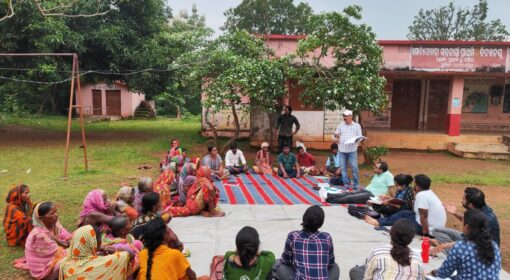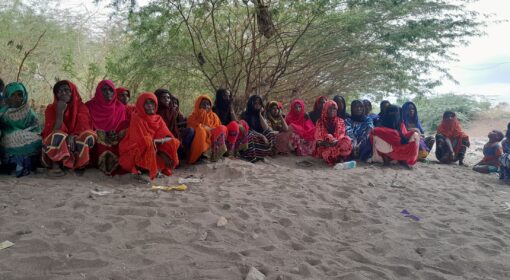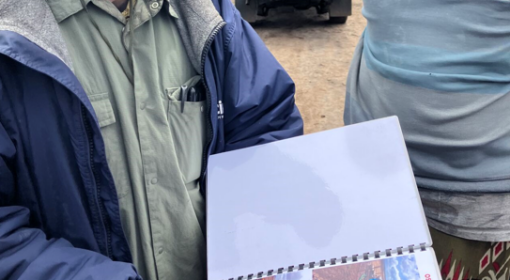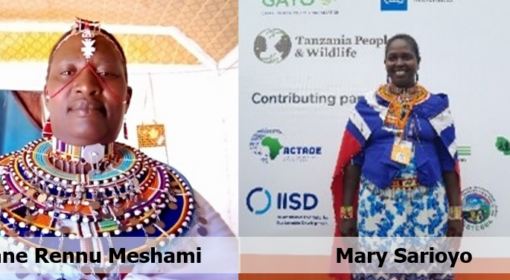This blog is part of a dossier on locally-led adaptation, featuring insights and lessons from the Reversing the Flow (RtF) program. RtF empowers communities in Bangladesh, Burkina Faso, Ethiopia, Kenya, and Sudan to build climate resilience through direct funding and a community-driven, landscape approach.
The intersection of land tenure rights, climate change, women empowerment, and locally led adaptation reflects a pressing call for transformative solutions, particularly within pastoralist and Indigenous communities in Northern Kenya. As the RESTORE project by IMPACT Kenya demonstrates, addressing these interconnected challenges necessitates a paradigm shift that place local communities at the forefront of climate change adaptation and mitigation, to building resilience.
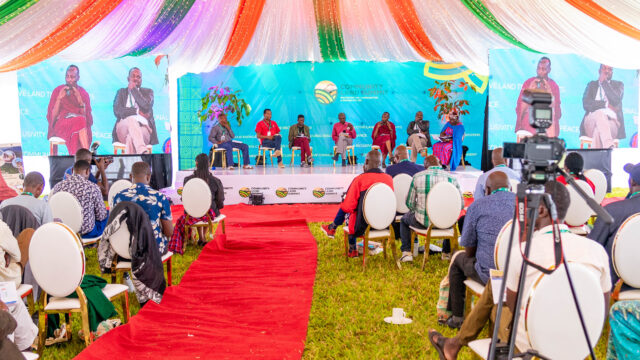
The Foundation: Secure Land Tenure Rights – For Indigenous Peoples and pastoralist communities, secure land tenure is more than an economic asset—it is a cultural cornerstone and a means of survival. However, weak land governance and encroaching threats such as land grabbing, extractive industries, and carbon offset projects have left these communities vulnerable to displacement and disenfranchisement. Without clear ownership and governance structures, communities are unable to leverage their land for long-term investments or climate adaptation initiatives. RESTORE emphasizes land tenure as a prerequisite for community-driven solutions, fostering trust and ownership over climate resilience projects.
Climate change impacts hits harder those who depend on natural resources. Rising temperatures, erratic rainfall, and prolonged droughts disrupt livelihoods, especially for pastoralist communities who rely on mobility and shared grazing lands. In the 2024 Community Land Summit, indigenous communities in Kenya and beyond, converge to share their experience in tackling climate change. They also voiced their aspiration as one community, while addressing the gaps that the top-down traditional interventions present. The RESTORE project was spotlighted as a learning point on how different stakeholder should approach the development agenda and putting communities to lead the process.
Women, often the custodians of natural resources, bear the brunt of climate change while simultaneously being powerful agents of adaptation. However, systemic gender inequalities restrict their access to land, decision-making, and financial resources. The recognition of the role of women in the struggle for climate change adaptation and mitigation has not been overlooked. Various sessions addressed the position of indigenous women, particularly those from pastoral communities.
Locally Led Adaptation: A New Paradigm – RESTORE’s approach to locally led adaptation disrupts the traditional top-down model of climate action by shifting power to communities. Through direct financing, policy influencing and knowledge exchange. The model ensures that resources are accessible to those most affected, enabling them to design initiatives tailored to their unique ecological and cultural contexts. This model values traditional knowledge, promotes inclusive governance, and strengthens collective action.
The Community Land Summit hosted 2024, by IMPACT Kenya, was the third annual gathering, that serves as a critical platform for advancing these discussions. By bringing together diverse stakeholders—including Indigenous leaders, policymakers, and other actors. The 2024 summit amplified the voices of those at the forefront of land tenure struggles and climate adaptation. It provided a space for exchanging innovative practices, advocating for transparency in carbon markets, and addressing gender justice within climate frameworks.
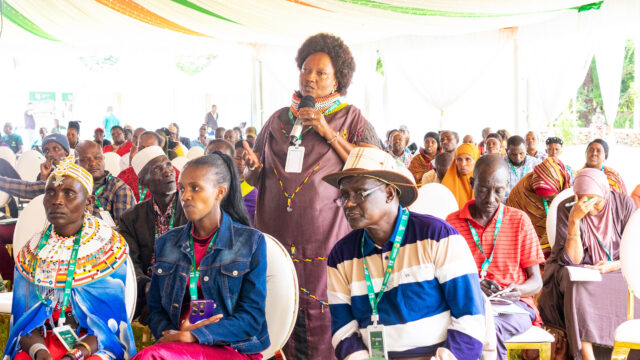
Charting the Path Forward
The convergence of land tenure rights, climate change, women’s empowerment, and locally led adaptation underscores the interdependence of environmental and social justice. As exemplified by RESTORE, solutions must be grounded in the lived experiences of communities, with an unwavering dedication to equity and sustainability grounded by immediate needs of the communities. By prioritizing people and promoting collaboration, we can transform the challenges of climate change into opportunities for resilience, justice, and inclusivity. This paradigm shift in development world presents a pathway not only for pastoralist and Indigenous communities but also for the global pursuit of a sustainable future in the aftermath of climate change.
